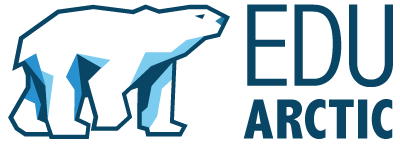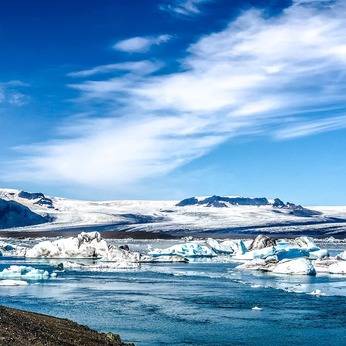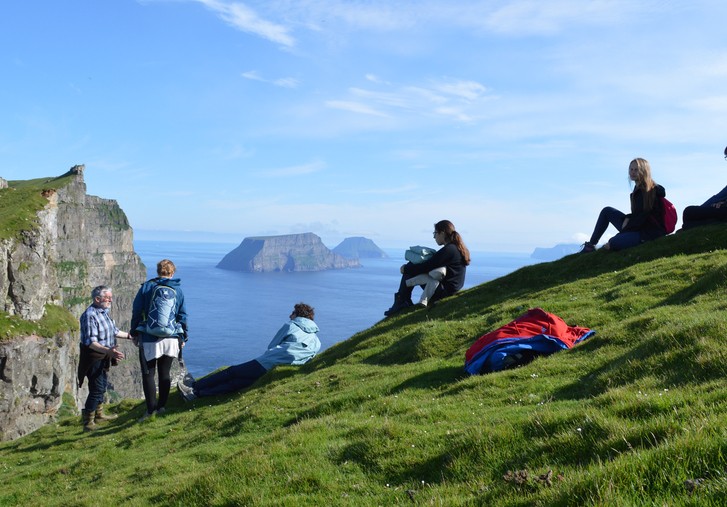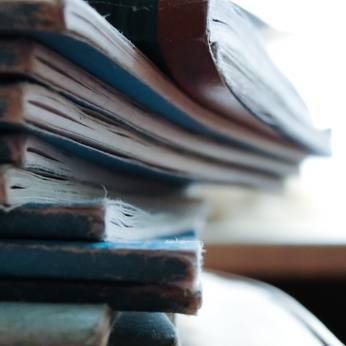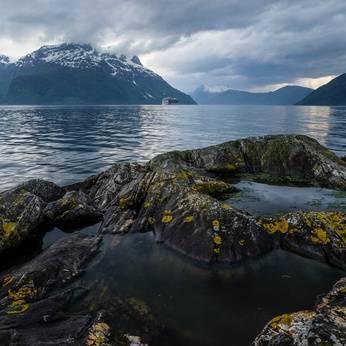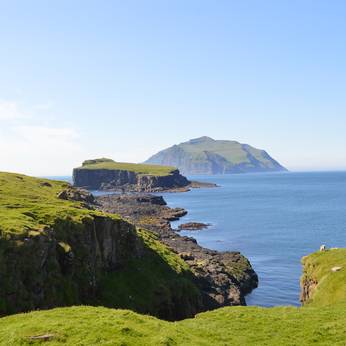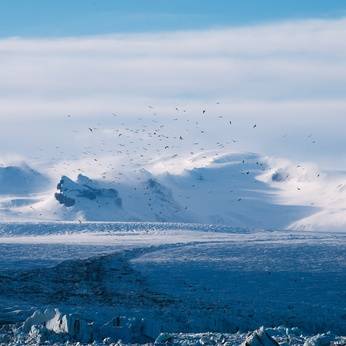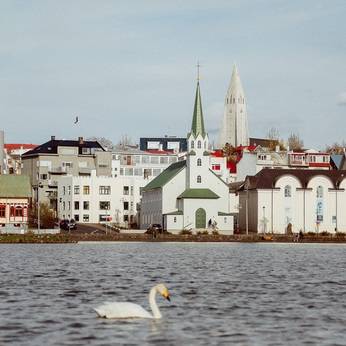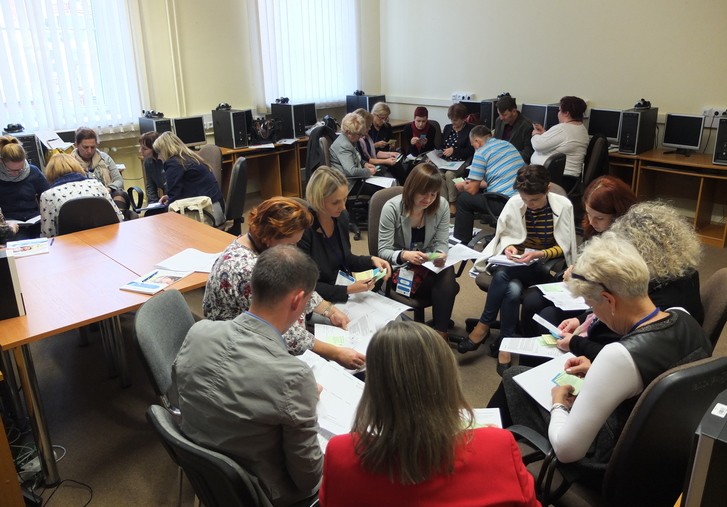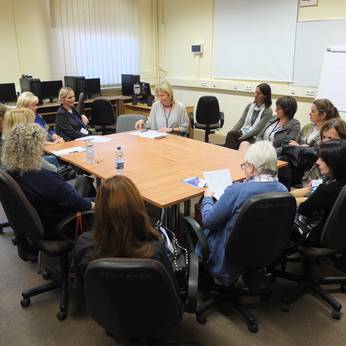Online Lessons
Polarpedia
Polarpedia
Encyclopedia about the Arctic region, explaining polar phenomena and scientific terminology
Learn MoreMonitoring System
Arctic Competitions
Arctic Competitions
A chance for students and their teachers to win a trip to an Arctic station
Learn MoreTeacher Workshops and
Training Sessions
Teacher Workshops and
Training Sessions
The EDU-ARCTIC Fora were held in 3 European countries
Learn MoreRegistered teachers
EDU-ARCTIC Videos
Introductory webinars, lessons' recordings, promo materials
Online Lessons
Virtual classes from Arctic research stations by scientists
This is the main component of the EDU-ARCTIC program. Transmissions from polar stations, will be provided for schools. Additionally, to raise the attractiveness and diversity of scientific subjects, some special transmissions with selected experts in polar research and Earth sciences will be provided by other institutions: special transmissions from UVSQ’s climatology and environmental science research laboratories in France and IGF PAS in Poland.
Online lessons will be dealing with the following disciplines and research topics: environmental sciences, geophysics (seismology, Earth magnetism), geology, geomorphology, climatology, climate change, atmospheric chemistry and physics, hydrology, ecology, soil science, oceanography, microbiology, marine, biology, biodiversity, paleoecology, limnology and additionally anthropology, the sociology of Arctic regions, human biology and medicine, genetics, zoology, biology and to some extent socio-humanities.
Exemplary groups of topics that will be presented include:
- Genetics of the Brown bear population
- Climate change - phenology and carbon cycling
- Invasive species – the example of fish (Vendice) in freshwaters and King Crab in the Barents sea
- Meteorology beyond the Arctic Circle
- Glacial processes and landforms
- Destructive and elevating activities of glaciers
- Hibernating bears and climate change
- Spitsbergen’s means of transport
- Permafrost
- The Polish home near the North Pole – what do Poles do in the Arctic?
- Spitsbergen’s fauna
- The Polar bear – King of the Arctic
- Seismology and Earth magnetism beyond the Arctic Circle
- Cyclones in the North Atlantic
- Active erosional landforms
- Land use and grazing by domestic animals
- Basaltic landscapes and what they teach us about plate tectonics
- Atmospheric-stratospheric dynamics over the Arctic: the MIMOSA model
- The Arctic ozone hole
- Reindeer herding and climate change
- Greenlandic society and climate change
- Accumulation of mercury, other heavy metals and organic pollutants in the Arctic.
- A series of practical webinars on various simple and educational school experiments etc.
- Wildlife monitoring, the big predators in the North/in the Arctic. Underlying theory, why is this important.
- Genetic non-invasive monitoring of big predators: results worldwide, what does it say in practice, landscape ecology.
- Invasive pest species and relations to climate change – the example of birch moths
- Adaptation by animals to life in the Arctic; physiology, evolution, from insects to mammals, plant physiology and phenology, comparison of central and northern European species
- Behaviour of wildlife in the Arctic; migration, annual flyways of birds, reindeer wandering
and more
Transmissions will be interactive. Scientists will involve pupils actively by encouraging them to ask questions and to perform given assignments. It is crucial that pupils become active players in the process of learning. Pupils and teachers will have the possibility to take part virtually in experiments and measurements conducted at stations. They will be asked to put forth a hypothesis concerning the experiment or phenomena discussed with a scientist. It will help them to develop skills of analytical and logical thinking and the use of research methods to solve problems.
They will also perform their own experiments on the basis of suggestions from scientists. This will increase the attractiveness of such lessons. Hands-on activities are considered one of the most effective and powerful ways of learning. During online lessons they could also ask about different phenomena which occur in the Arctic. They will become familiar with scientific career opportunities, as well as everyday activities of researchers and their curriculum. It will be a new experience for them and an opportunity to detach themselves regularly from school routine. They will also gain access to the newest scientific discoveries and reports. Transmission will help them to better understand scientific messages, a useful skill in everyday life. But they will also familiarize themselves with scientific language used in research publications, a crucial skill for their prospective career in science.
We hope we encourage you to participate.
What to do next?
- Register on portal
- Enrol for an online lesson
- Make sure your pupils are ready for a wonderful, educational, virtual journey
How can you access an online lesson you have enrolled?
Once you have enrolled for any one online lesson you should see a message posted to you below containing confirmation info including a link ready to be used. Once you follow that link, you will be redirected to the virtual classroom just before the lesson. Please check that prior to the time given in Online lesson details. You may have to perform some very easy technical settings in order to fully participate. Do not worry. The message will guide you through all the stages.
PLEASE NOTE:
- you may be enrolled for up to 5 online lessons at the same time. This means, if you've enrolled for 5 lessons and want to enrol for another one, you may either unenrol from at least 1 lesson or wait until at least one of them is completed.
- all teachers may participate in English lessons without limitations; sometimes lessons in other, national languages will be organized. If you enrol for such lesson which is not provided in your native language, you will be enlisted on stand-by list automatically. You will be able to participate of there are available places,and you will receive a link about 15 minutes before the lesson. If you wish to participate in lesson given in language other than English and your native language, but for example in language taught at your school, please contact us individually.
See you on an online lesson!
- Completed
- Forthcoming
- Thematic course
- Specially recommended
Polarpedia
Encyclopedia about the Arctic region, explaining polar phenomena and scientific terminology
Monitoring System
Citizen environmental monitoring carried out at participating schools
One of well recognized phenomenon in the Arctic is changing ice cover in the Arctic Ocean, which not only has a huge impact on the weather and circulation, but also influences the lives of many biological species. Consequently it is important not only for the Arctic itself, but reaches far into the zone of moderate climate, and shapes many processes in the European sector of the Arctic, where the greatest variability is observed in recent years.
A map on the left side presents the current ice conditions in the Arctic. It is updated daily and enable to analyse ice coverage far North. We will organize some lessons with our experts, who will explain, how we may predict weather using information on ice coverage in the Arctic. An interesting addition is a graphical chart below, presenting the changes in the sea ice extent within years in comparison to average change over past 45 years.
Teacher Workshops and Training Sessions
The EDU-ARCTIC Fora were held in 3 European countries

France - Workshop
The French Educators’ Forum was held at the University of Versailles Saint-Quentin-en-Yvelines in Guyancourt, (Earth Sciences and Climatology Campus OVSQ) from 21 to 22 September 2017. 16 teachers from 8 countries (Greece, Italy, Albania, Romania, Cyprus, Serbia, Portugal and Macedonia) participated.
Read morePoland - Workshop
Educators’ Forum in Poland was held in Warsaw, from 23 to 24 September 2017. The hosting institution was Institute of Geophysics, Polish Academy of Sciences. 38 teachers from 15 countries (Albania, Bosnia and Hercegovina, Bulgaria, Croatia, Estonia, Hungary, Israel, Latvia, Lithuania, FYR Macedonia, Poland, Romania, Russia, Serbia, Slovenia) participated.
Read more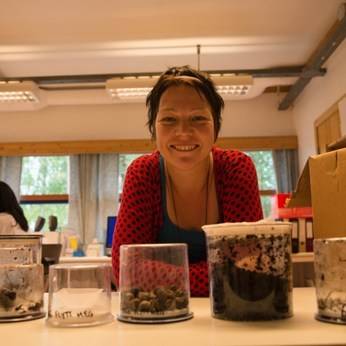
Norway - Workshop
The Educators’ Forum in Norway took place near Oslo, 18 October 2017. The hosting institution was the Norwegian Institute of Bioeconomy Research (NIBIO), one of the consortium members of EDU-ARCTIC. 16 participants from 12 countries (Greece, Faroe Islands, Norway, Sweden, Finland, Poland, Switzerland, Denmark, Italy, Albania, Macedonia and Romania) were present.
Read more
